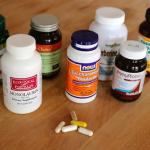By Leigh Turner, University of Minnesota
FDA
The FDA just revoked the emergency authorization of chloroquine and hydroxychloroquine (HCQ) - two malaria drugs that were supposed to help control coronavirus infection. But they were strong on hype and weak on results.
The endless daily reports of possible vaccines and potential drugs to treat coronavirus all mention the need for clinical trials before the drug or a vaccine can be approved for use, but without making it clear what the trial involve.
"China produces and exports a large amount of pharmaceuticals to the U.S., including 97 percent of all antibiotics and 80 percent of the active ingredients used to make drugs here.
Probiotics, like supplements, come under the regulatory oversight of the FDA.
Despite the good news for those interested in transparency in science and regulatory policymaking, there remains a bias in how the story is told.
Thanks in part to the efforts of ACSH and other evidence-minded health policy advocates, the CDC has admitted to a huge mistake.
Writing in her blog at the National Institute On Drug Abuse, Dr. Nora Volkow and co-author Dr.












